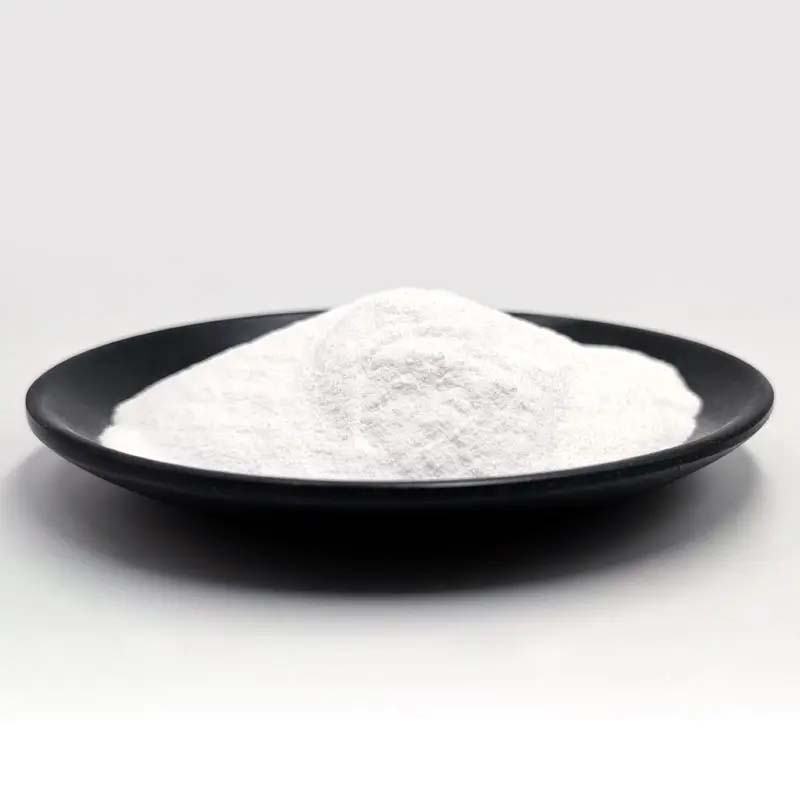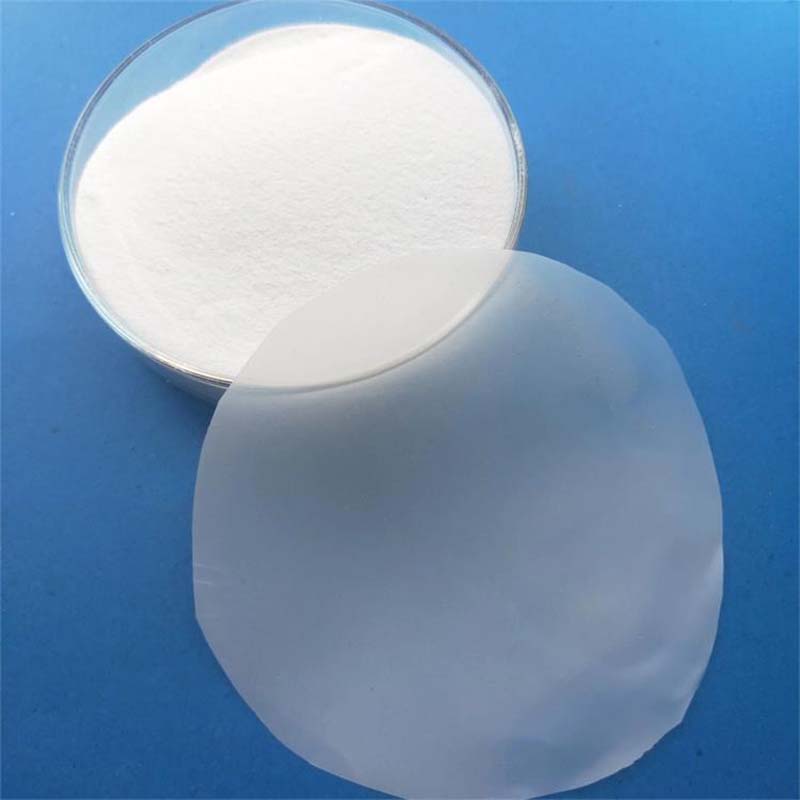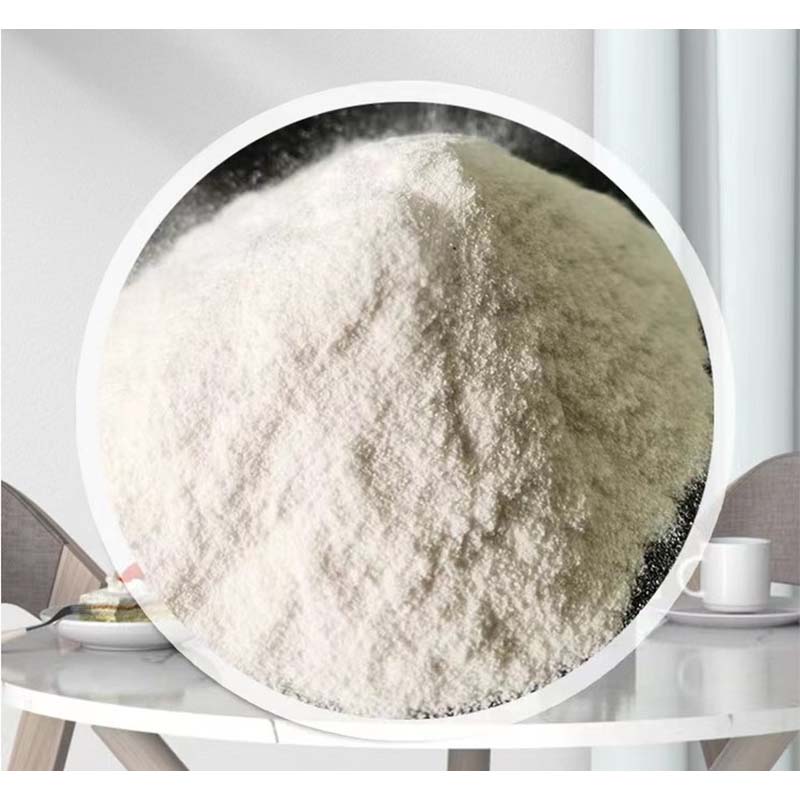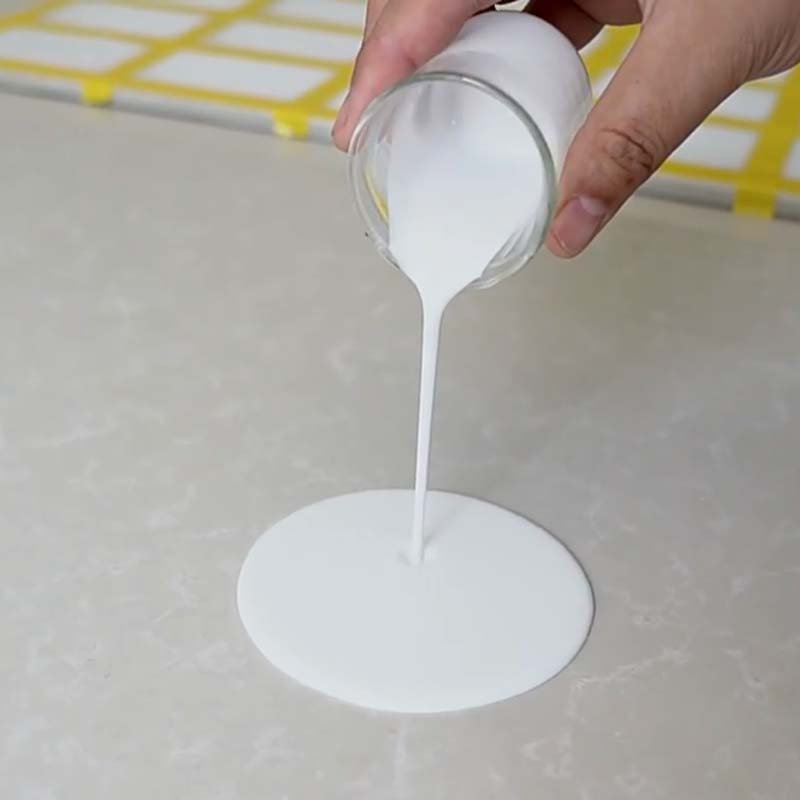RDP Powder: Premium Redispersible Polymer for Building Materials
The Pivotal Role of Redispersible Polymer Powder in Modern Construction Chemistry
The global construction industry is continually seeking advanced materials that offer enhanced performance, durability, and sustainability. Among these innovations, redispersible polymer powder rdp stands out as a critical additive, transforming the properties of cement-based mortars, plasters, and other construction compounds. Primarily derived from emulsions like Vinyl Acetate-Ethylene (VAE), Styrene-Butadiene (SBR), or Acrylics, RDPs are polymers that have been spray-dried into a powder form, enabling their easy redispersion in water to form stable emulsions. This unique characteristic allows them to be incorporated into dry-mix formulations, offering unparalleled advantages in terms of workability, adhesion, flexibility, water resistance, and overall durability. The market for RDPs is experiencing robust growth, driven by increasing demand for high-performance building materials, the rapid expansion of infrastructure projects, and a global shift towards sustainable and energy-efficient construction practices.
Industry trends indicate a significant push towards specialized applications requiring tailored RDP solutions, such as self-leveling compounds, tile adhesives, external thermal insulation composite systems (ETICS/EIFS), and waterproofing membranes. These applications demand precise technical parameters, including specific glass transition temperatures (Tg), minimum film-forming temperatures (MFFT), and particle sizes, to achieve optimal performance under diverse environmental conditions. The ability of RDPs to improve rheology, reduce shrinkage, and enhance resistance to freeze-thaw cycles makes them indispensable in modern construction. Furthermore, the rising adoption of pre-mixed dry mortars and the emphasis on construction efficiency are propelling the demand for high-quality redispersible polymer powder, necessitating continuous innovation in manufacturing processes and product formulations to meet evolving industry standards and customer expectations.
Precision Manufacturing Process of Redispersible Polymer Powder
The manufacturing of redispersible polymer powder rdp, such as VAE RDP emulsion powder Redispersible acrylic polymer powder, is a sophisticated chemical process that ensures the product’s high quality and consistent performance in various applications. The core of this process involves several stages, beginning with emulsion polymerization. In this stage, monomers like vinyl acetate, ethylene, and acrylates are polymerized in an aqueous medium in the presence of emulsifiers, stabilizers, and initiators to form a polymer emulsion. The precise control of temperature, pressure, and reaction time during polymerization is crucial to determine the polymer's properties, including its glass transition temperature (Tg), molecular weight, and particle size, which directly influence the final product's film-forming capabilities and flexibility. Post-polymerization, the emulsion undergoes a homogenization step to ensure uniform particle distribution and stability.

The subsequent and most critical stage is spray drying. The liquid polymer emulsion, often with the addition of anti-caking agents, is atomized into fine droplets within a hot drying chamber. The hot air rapidly evaporates the water, leaving behind spherical polymer particles coated with the anti-caking agent. This rapid drying process preserves the polymer's redispersibility and prevents particle agglomeration. The resulting fine powder is then collected, screened, and packaged. Throughout the entire manufacturing process, stringent quality control measures are implemented. This includes raw material inspection, in-process monitoring of polymerization parameters, and final product testing against international standards such as ISO 9001 for quality management and relevant ASTM/EN standards for performance. These standards ensure the product's consistency, purity, and performance characteristics, making the re dispersible polymer powder suitable for demanding construction applications, where its advantages like enhanced adhesion, crack bridging capabilities, and improved water retention are critical for energy efficiency and anti-corrosion properties in the final mortar systems.
Key Technical Parameters and Specifications of VAE RDP
Understanding the technical parameters of redispersible polymer powder is essential for selecting the appropriate grade for specific construction applications. These parameters dictate the performance characteristics imparted to the final dry-mix mortar. Key indicators include the solid content, which typically ranges from 98% to 99.5%, signifying the purity of the polymer content. The ash content, usually below 15%, indicates the inorganic residue, mainly from anti-caking agents, which should be minimal to avoid compromising performance. Particle size, often measured in microns, is crucial for good dispersion and workability; for instance, a finer powder (e.g., <180 µm) ensures rapid dissolution and homogeneous mixing. The minimum film-forming temperature (MFFT), expressed in degrees Celsius, is a critical parameter indicating the lowest temperature at which the polymer can form a continuous, cohesive film. This directly correlates with the ambient application temperature, ensuring proper film formation and subsequent performance, particularly for enhancing adhesion and flexibility.

Furthermore, the apparent density (bulk density), typically between 500-600 kg/m³, affects packaging and handling, while pH values (e.g., 7.0-9.0) indicate the product's compatibility with other mortar additives. Water absorption and tensile strength improvement are direct measures of the enhanced properties conferred by the redispersible polymer powder rdp in hardened mortars. Reputable manufacturers provide comprehensive datasheets detailing these specifications, often adhering to international testing methods. For instance, enhanced tensile strength suggests superior crack resistance, while reduced water absorption points to improved waterproofing. These precise technical metrics enable architects, engineers, and formulators to select the optimal VAE RDP grade, ensuring the final building material performs as expected, meets regulatory requirements, and delivers long-term durability in challenging environments.
Typical Technical Parameters for VAE RDP
Technical Advantages and Performance Enhancements of RDP
The inclusion of rdp vae in dry-mix mortars yields a multitude of technical advantages that are pivotal for modern construction practices. Fundamentally, RDPs improve the cohesion and adhesion of cementitious systems, significantly enhancing bond strength to various substrates, including concrete, masonry, and insulation boards. This is achieved by the formation of polymer films within the mortar matrix, creating a strong, flexible bridge between aggregates and hydraulic binders. Beyond adhesion, RDPs dramatically improve the flexural strength and deformability of mortars, allowing them to withstand structural movements, thermal expansion/contraction, and impact forces without cracking. This enhanced flexibility is crucial for applications like tile adhesives and crack-bridging coatings, where traditional rigid mortars would fail. The reduction in water absorption and permeability is another key benefit, offering superior waterproofing and resistance to aggressive environmental factors, thus extending the service life of construction elements.
Moreover, the addition of redispersible polymer powder rdp optimizes the rheological properties of fresh mortars. It enhances workability, leading to easier application, better spreadability, and reduced effort for installers. Parameters such as open time and pot life are extended, providing more flexibility during installation, especially in hot climates. It also improves slump resistance and thixotropy, preventing sagging in vertical applications like renders and plasters. For self-leveling compounds, RDPs contribute to achieving a smooth, level surface with excellent flow characteristics. The finely dispersed polymer particles also contribute to improved abrasion resistance and durability of the hardened mortar, making them suitable for high-traffic areas. These comprehensive improvements in both fresh and hardened state properties underscore why rdp powder uses are ubiquitous across high-performance construction materials, driving efficiency and longevity in building projects.
Diverse Application Scenarios of Redispersible Polymer Powder
The versatility of redispersible polymer powder rdp makes it an indispensable additive across a broad spectrum of construction chemical applications. In the realm of tile adhesives, RDP significantly enhances bond strength to various substrates (e.g., concrete, plywood, existing tiles) and improves deformability, accommodating substrate movement and thermal stress, which is crucial for large-format tiles and underfloor heating systems. For external thermal insulation composite systems (ETICS/EIFS), RDPs are integral to both the adhesive and base coat mortars, providing excellent adhesion to insulation boards (EPS, mineral wool) and improving the flexibility and crack resistance of the render, thereby contributing to the system's energy efficiency and long-term stability. In self-leveling compounds (SLCs), RDPs ensure superior flow properties, minimized segregation, and improved surface hardness, leading to perfectly level and durable floors.

Beyond these prominent uses, redispersible polymer finds extensive application in waterproofing membranes, where it enhances elasticity, crack bridging, and adhesion to substrates, creating a highly effective barrier against moisture ingress. It is also critical in repair mortars, boosting their adhesion to old concrete, reducing shrinkage, and increasing durability, making them ideal for structural repairs. In wall skim coats and plasters, RDP improves workability, adhesion to substrates, and resistance to efflorescence and cracking, resulting in smoother, more durable finishes. Mortars containing RDP also exhibit superior resistance to weathering and abrasion, making them suitable for facades and industrial flooring. From residential buildings to large-scale infrastructure projects, the consistent enhancement provided by high-quality rdp vae ensures reliable performance and extended service life for a wide array of building materials, catering to the specific needs of different climatic zones and structural demands.
Choosing Your Partner: Manufacturer Comparison and Custom Solutions
Selecting the right manufacturer for redispersible polymer powder is paramount for ensuring consistent quality and performance in your end products. Key criteria for evaluating manufacturers include their commitment to quality certifications like ISO 9001, which signifies robust quality management systems throughout their production processes. Equally important is the breadth of their product portfolio, offering various grades of VAE RDP emulsion powder Redispersible acrylic polymer powder tailored for different applications and performance requirements (e.g., high flexibility, improved water repellency, specific MFFT ranges). A reputable manufacturer will provide comprehensive technical datasheets, support with formulation guidance, and offer responsive technical service to help optimize your specific mortar formulations. Their service years in the industry and established partnerships with major construction chemical companies serve as strong indicators of their reliability and expertise.

Beyond standard offerings, the capability to provide custom solutions is a significant differentiator. Leading suppliers often collaborate with clients to develop bespoke redispersible polymer powder rdp grades that meet unique project specifications, regional climate challenges, or specific performance benchmarks (e.g., enhanced early strength development, particular rheological profiles). This customization might involve fine-tuning the polymer composition, particle size distribution, or the type of protective colloid used to achieve desired properties. Companies like ours, with a robust R&D infrastructure and extensive experience, can offer such tailored solutions, providing not just a product but a partnership for innovation. Engaging with manufacturers that demonstrate transparent testing data, provide authoritative citations for their product performance, and maintain a focus on long-term client relationships ensures a reliable supply chain and continuous improvement in your construction material formulations, fostering trust and operational excellence.
Key Factors in Manufacturer Comparison
Application Cases and Client Testimonials
Our redispersible polymer powder rdp has been successfully implemented in numerous high-profile construction projects globally, demonstrating its efficacy and reliability in diverse climatic and structural conditions. For instance, in a large-scale commercial complex in Southeast Asia, our specific grade of VAE RDP was critical for the tile adhesive used on over 100,000 square meters of flooring. The client reported exceptional bond strength and flexibility, significantly reducing the incidence of tile debonding despite high foot traffic and tropical humidity. This led to faster installation times and substantial cost savings in post-installation repairs. In another compelling case, our re dispersible polymer powder was chosen for the external thermal insulation composite system of a high-rise residential building in a temperate climate zone. The enhanced crack resistance and long-term durability provided by our RDP ensured the integrity of the facade, contributing to the building's energy efficiency ratings and aesthetic appeal over extended periods, validated by post-completion inspections and tenant feedback on thermal comfort.
Furthermore, our technical team collaborated closely with a leading dry-mix mortar producer in Europe to develop a customized rdp vae solution for their new range of waterproofing membranes. The objective was to achieve superior elasticity and crack-bridging capabilities at low temperatures. Through several iterations of formulation and rigorous testing, we provided a bespoke polymer powder that met their exact specifications, enabling them to launch a highly competitive product line. The positive feedback from their end-users underscored the superior performance of the membrane in critical waterproofing applications, including basements and rooftops. These success stories are a testament to our commitment to delivering not just high-quality redispersible polymer powder, but also comprehensive technical support and tailored solutions that empower our clients to achieve their project goals and exceed market expectations, reinforcing our position as a trusted partner in the construction chemical industry.
Frequently Asked Questions (FAQ)
Q1: What is the primary function of redispersible polymer powder in cementitious mortars?
The primary function of redispersible polymer powder rdp is to enhance the performance of cement-based mortars and concrete by improving their adhesion, flexibility, tensile strength, water retention, and durability. When redispersed in water within the mortar mix, the polymer particles form a flexible film upon drying, which bridges micro-cracks, increases bond strength to various substrates, and imparts elasticity to the otherwise rigid cement matrix. This leads to more robust, long-lasting construction materials with improved workability and resistance to environmental stresses.
Q2: How does VAE RDP differ from other types of RDPs like acrylic or styrene-butadiene?
VAE (Vinyl Acetate-Ethylene) redispersible polymer powder is particularly renowned for its excellent balance of flexibility, strong adhesion, and good water resistance. It offers a broad range of applications, including tile adhesives, ETICS/EIFS, and self-leveling compounds. Acrylic RDPs typically provide superior UV resistance and are often used in exterior coatings and renders where color stability is crucial. Styrene-Butadiene (SBR) RDPs are known for their very high flexibility and water resistance, often favored in waterproofing and crack-bridging applications. The choice depends on the specific performance requirements and cost considerations of the final application.
Q3: What are the storage recommendations for redispersible polymer powder?
Redispersible polymer powder should be stored in a cool, dry place, away from direct sunlight and moisture. It is crucial to keep the product in its original, unopened packaging to prevent moisture absorption, which can lead to caking and loss of redispersibility. The typical shelf life is about 12 months under proper storage conditions. For opened bags, it is recommended to seal them tightly and use the remaining material promptly to maintain product integrity and performance. Adherence to these storage guidelines ensures the product retains its specified technical parameters.
Delivery, Quality Assurance, and Customer Support
Ensuring reliable supply chain management is as critical as product quality for our B2B partners. We maintain robust production capabilities and strategic logistics partnerships to ensure timely and efficient delivery of our redispersible polymer powder rdp worldwide. Our typical delivery cycle, from order confirmation to dispatch, ranges from 7 to 14 business days, depending on order volume and destination. We offer flexible packaging options, including 25kg paper bags with inner PE liners, jumbo bags, or custom packaging solutions to meet specific client requirements, optimizing freight and handling efficiencies. Each batch undergoes rigorous pre-shipment inspection and comes with a Certificate of Analysis (CoA), verifying adherence to stated technical specifications.
Our commitment to quality extends beyond manufacturing. We provide a comprehensive quality assurance promise, guaranteeing that our VAE RDP emulsion powder Redispersible acrylic polymer powder meets or exceeds industry standards. All products are manufactured under ISO 9001 certified conditions, with continuous process monitoring and final product testing. In the rare event of a quality deviation, our dedicated customer support team is available to address concerns promptly, offering thorough investigation and resolution processes. We stand by a clear warranty policy, ensuring peace of mind for our clients. Furthermore, our technical support extends to post-sales assistance, offering guidance on product application, formulation adjustments, and troubleshooting, ensuring our partners derive maximum value from our high-performance redispersible polymer powder and fostering long-term, trustworthy relationships.
Conclusion: The Future of High-Performance Construction
The continuous evolution of the construction industry demands advanced material solutions that combine superior performance with economic efficiency and environmental responsibility. Redispersible polymer powder rdp, particularly VAE RDP, stands at the forefront of this evolution, offering an unparalleled array of benefits for modern dry-mix mortar formulations. Its ability to significantly enhance crucial properties such as adhesion, flexibility, water resistance, and workability makes it an indispensable component in a wide range of applications, from intricate tile installations and robust thermal insulation systems to resilient waterproofing layers and durable repair mortars. As construction practices globally shift towards greater sophistication and sustainability, the demand for high-quality, reliable, and technically supported RDP solutions will only continue to grow.
Partnering with a specialized and experienced manufacturer ensures access to not only premium re dispersible polymer powder but also to deep technical expertise, custom formulation capabilities, and robust logistical support. This holistic approach empowers construction chemical formulators and building material producers to innovate, optimize their product portfolios, and consistently deliver high-performance solutions that meet the evolving demands of the market. The long-term durability, reduced maintenance, and improved aesthetic qualities imparted by the judicious use of redispersible polymer powder contribute directly to the enhanced value and longevity of modern infrastructure, solidifying its role as a cornerstone material for the future of sustainable and resilient construction.
References
- ASTM International. Standard Specification for Redispersible Polymer Powder for Use in Hydraulic Cementitious Mortars.
- European Committee for Standardization (CEN). EN 12004: Adhesives for tiles - Requirements, evaluation of conformity, classification and designation.
- ISO (International Organization for Standardization). ISO 9001: Quality management systems – Requirements.
- The Construction Chemicals industry reports and market analysis by leading research firms.
- Journal of Materials in Civil Engineering. Peer-reviewed articles on polymer modified mortars.
-
The Role of Methyl Ethyl Hydroxyethyl Cellulose in Tile AdhesivesNewsAug.11,2025
-
The Future of Digital Textile Printing with Advanced Paste TechnologiesNewsAug.11,2025
-
The Chemical Modification Process of Carboxymethyl Cellulose from CelluloseNewsAug.11,2025
-
Hydroxypropyl Starch Versus Native Starch Key Differences and BenefitsNewsAug.11,2025
-
Comparing Celulosa HPMC with Other Cellulose Ether DerivativesNewsAug.11,2025
-
Chemical Composition and Structure of VAE Redispersible PowderNewsAug.11,2025








